I can’t seem to get into this value-of-poetry topic so for now will simply deal with the terminology I came up with several days ago and thought would get me going deeper. I’ve pretty much junked all of my previous related terminology. The new terminology should cover everything it did.
First of all I have ordained that a poem hath:
Fundamental Constituents:
1. words as words, and punctuation marks and verbal symbols like the ampersand and mathematical symbols like the square root sign, or the verbal constituents of poetry;
2. words as sounds, or the auditory constituents of poetry–which can, in the case of sound poetry, include averbal sounds;
3. words as printed objects, or the visual constituents of poetry–which can, in the case of visual poetry, include averbal graphics.
I tentatively would also include negative space, by which I mean not only the blank page words are printed on but the silence their sounds can be said to be printed on, as fundamental constituents of poetry.
Every poem contains all four of these constituents. Taken together, they form the poem’s denotative layer, which expresses what the poem explicitly means. That layer in turn generates the poem’s connotative layer, which expresses what most people would find it implicitly to mean. Note: if the poem is plurexpressive–a visual or sound poem, for instance–its graphics or sounds would contribute to both layers: a drawing of a house would denote a house, for example, and the sound of a gunshot would denote a gunshot. (“Gunshout,” I mistyped that as, at first. Aren’t words fun?!)
The two layers together make up what I’m now calling a poem’s expressifice. (“Boulder”–“bolder” with a u added. Sorry, I began wondering if I could–oops, that’s “cold” with a u added–make a Kostelanetzian list of words like “gunshout.” I didn’t intend for the longer word to be a regular wourd. . . .)
Back to “expressifice.” It is responsible for what a poem says. Okay, nothing new except the Grummanisms so far. Recently, and this is an area I must but probably won’t research, there has been some grappling with the idea of “conceptual poetry” that I have found important and interesting, but confusing. My next “poetifice” is the conceptifice. My Merriam Webster’s Collegiate Dictionary provides a definition of “concept” that I find satisfactory for my purposes: “an abstract or generic idea generalized from particular instances.” In a poem, it would be close to what I’ve used the term, “unifying principal,” for. A poem’s “meaning” seems to me a near-synonym for it, too.
I can’t see that it’s any less “expressed” by a poem than connotations are, and I mention that because my impression is that those discussing conceptual poetry generally oppose it to “expressive poetry,” by which they basically mean “what a poem says” rather than the meaning of what a poem manifests.
It now occurs to me that what the conceptual poets are doing is minimalizing what I call their poems’ expressifices to magnify their conceptifices. If so, my term should be more useful than I at first thought it would be. I feel it of value anyway because of the great difference between what it can be said to express and what the expressifice can.
As I wrote that, I realized that the entire conceptifice of many poems, particularly the most popular ones is not very ideational–is, in fact, just a large connotation. Basho’s famous frogpond (“frogpound?”) can help here, I think (and I’m a bit foggy about where I’m going, but think I’m getting to someplace worth getting to). Here’s my translation of it:
‘
old pond . . . . . . the sound of a frog splashing in
.
This poem may have more valid, interactive unifying principals per word-count than any other poem ever made. So its conceptifice includes the idea of “the contentment the quiet portions of the natural world can provide one.” Or is that an image? In any case, it seems different in kind to a seond idea it clearly presents: “the wide range in magnitude (in all meanings of the word) of the universe’s moments.” We feel the first, we . . . ideate? the second–while feeling it, yes, but in a another way, in another place in our brains, than we do the serenity the first component of the poem’s conceptifice is about. Poetry, and poetry-become-philosophy.
I will have to come back to this.
The final three poetifices are the aesthifice, the anthrofice and the utilifice. These have to do the meaningfulness of a poem’s initial meanings. Every poem has all three of these, but usually one is emphasized at the expense of the other two.
The aesthifice has no meaning, it just is. (See MacLeish.) It is meaningful for its expression of sensual beauty. It can’t help but express other things, but they are trivial compared with the beauty of its sounds and/or sensual imagery and/or feelings it is most concerned with. In my notes about it I mention “beauty of constituents,” “imagery” (and “deep imagery,” possibly. “freshness of expression,” “archetypality,”display of skill” and “patterning.” There are more, probably many more.
The anthrofice has no meaning, either, but is primarily concerned with human beings, their actions and emotions. It expresses what I call “anthroceptual beauty,” the beauty of human love, for instance. Narrative poetry aims for anthrofices, lyric for aesthifices. Then there’s the utilifice. It does mean. A rhymed text you value because of what you learned from it will feature a utilifice. Beauty of any significance is besides the point, what counts is that what one gets goes beyond what the poem is–the poem is a helpful step toward attaining something more valuable than it whereas a lyric or narrative poem is art for art’s sake. In short, I categorize a “poem” whose utilifice is dominant as a form of utilitry–either informrature if conveying information, or advocature if telling people what to do. Lyric and narrative poems are forms of art.
If I weren’t such a lump, I’d now apply the above to actual poems. As a matter of fact, that’s what I want to do in my November Scientific American blog entry. Right now, though, here’s a rhyme that isn’t a poem:
Count that day lost Whose low descending sun Views from thy hand No worthy action done.
It’s from a wall of my high school cafeteria. I don’t know who wrote it, but I like it a lot-–and believe in it! A pretty rhyme but didactic, so not a poem. Its function is not to provide pleasure but to instill (however pleasantly) a valuable rule of conduct.
All of a poem’s poetifices taken together are a . . . poem, a lyrical poem if the poem’s aesthifice is dominant, a narrative poem is its anthrofice is dominant, and a utilitarian poem is its utilifice is dominant.
* * *
Well, I did a lot better than I thought at the start. It needs more work but I’m satisfied with it as is.
.
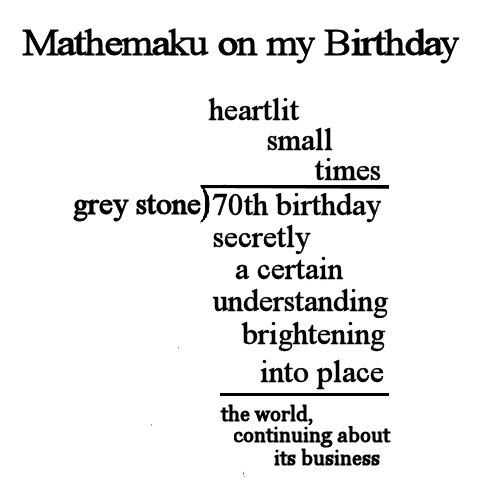
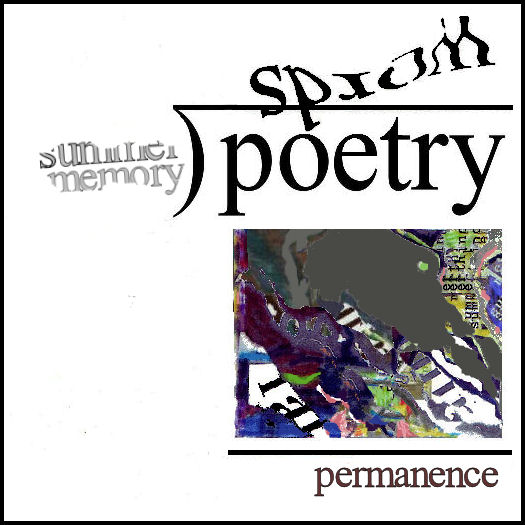
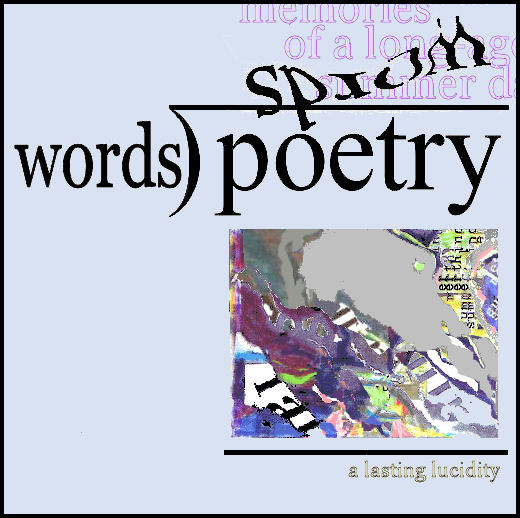

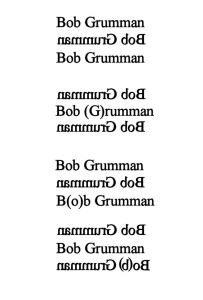






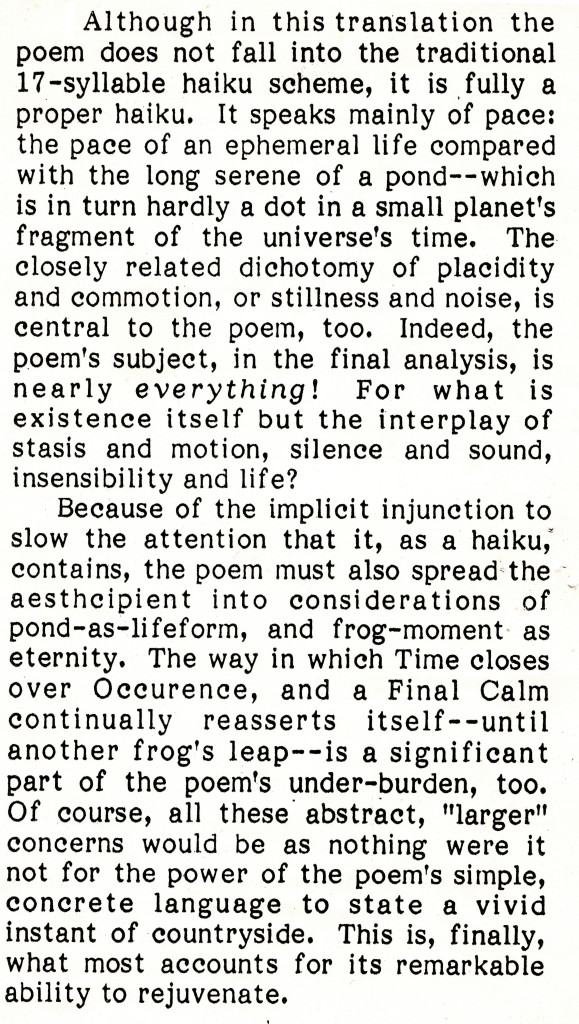
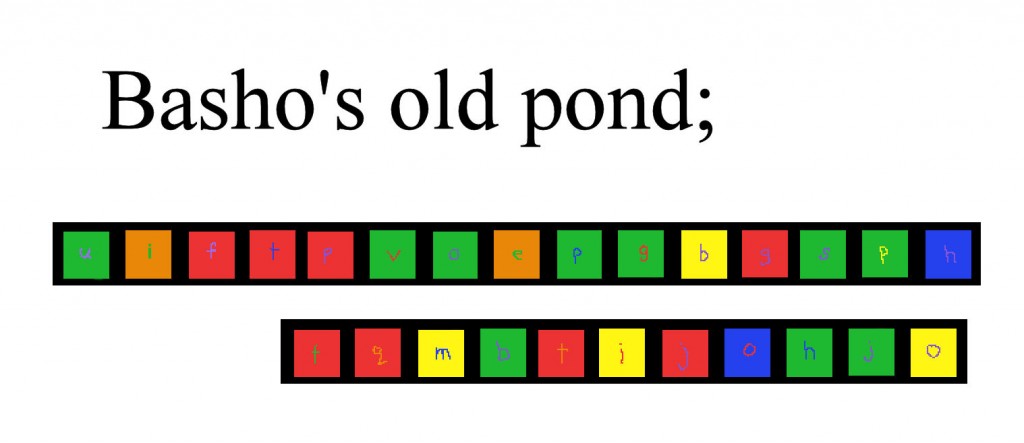
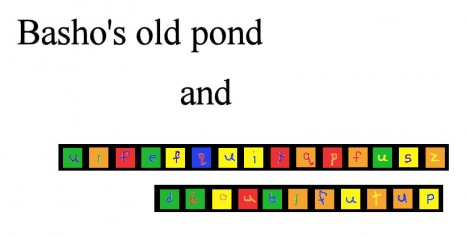
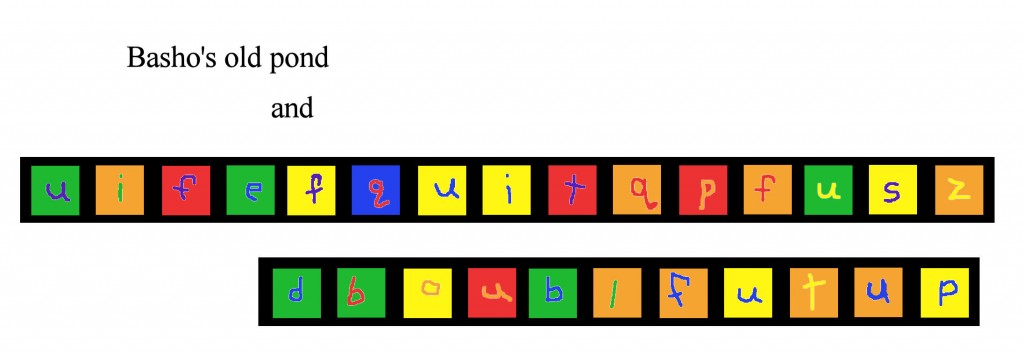

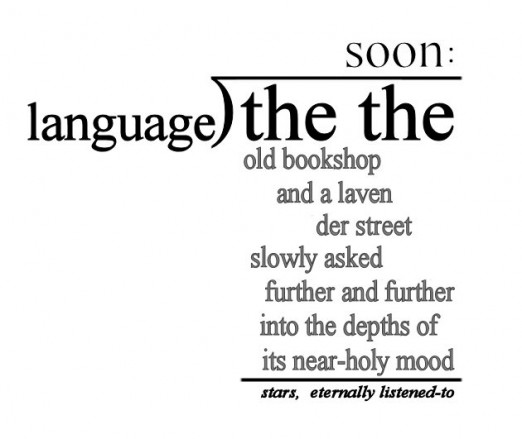
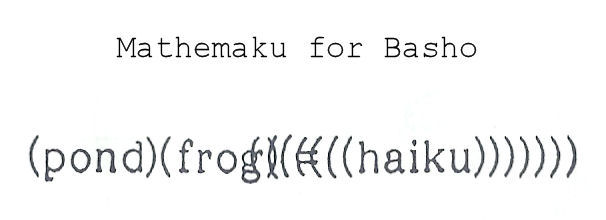
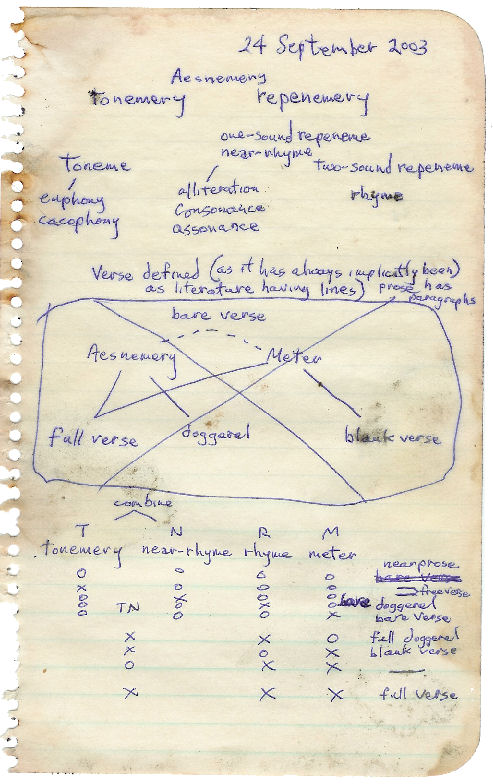
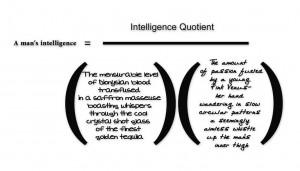 Oops, you may need a magnifying glass. My choice of reproduction seems to be the size above, or four times as large. Anyway, it’s called “A Man’s Intelligence” and may be more informrature–a specimen of informratry–than poetry. Let me quote what it says: “A man’s Intelligence” equals “intelligence Quotient” divided by the product of “The measurable level of Dionysian blood transfused in a saffron masseuse boasting whispers through the cool crystal shot glass of the finest golden tequila” times “The amount of passion fueled by a young pink Venus–her hand wandering in slow circular patterns, a seemingly aimless whistle up the man’s inner thigh.”
Oops, you may need a magnifying glass. My choice of reproduction seems to be the size above, or four times as large. Anyway, it’s called “A Man’s Intelligence” and may be more informrature–a specimen of informratry–than poetry. Let me quote what it says: “A man’s Intelligence” equals “intelligence Quotient” divided by the product of “The measurable level of Dionysian blood transfused in a saffron masseuse boasting whispers through the cool crystal shot glass of the finest golden tequila” times “The amount of passion fueled by a young pink Venus–her hand wandering in slow circular patterns, a seemingly aimless whistle up the man’s inner thigh.”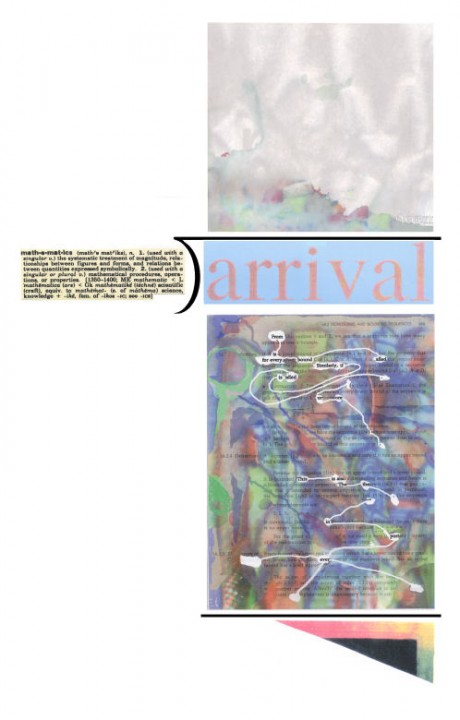
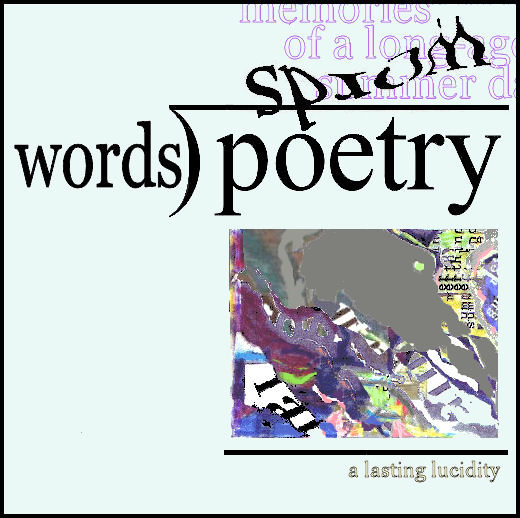
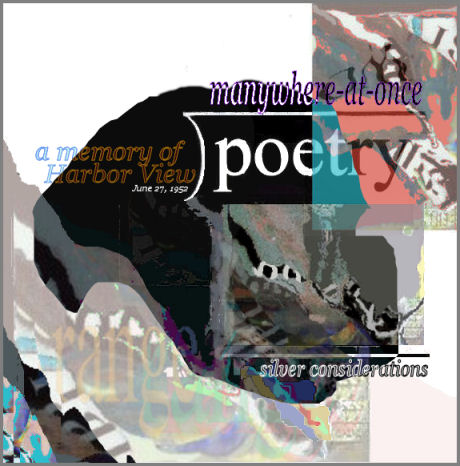
Is the last one actually “I’ve”. Or you could have put in “lave” and just washed yourself of the whole thing. OK. I’ll stop with the lavatory humor now.
– endwar
Although the context makes it clear that the first letter of “lve” must be an l, I’ll make sure there’s no possibility of confusion when I make the final version of the poem. No comment on the outrageous lack of respect for a poem I consider a sacred (pantheistic) object your attempt at lavatory humor. But thanks for taking the time to sprinkle your recent comments on my blog, Endwar.
–Bob